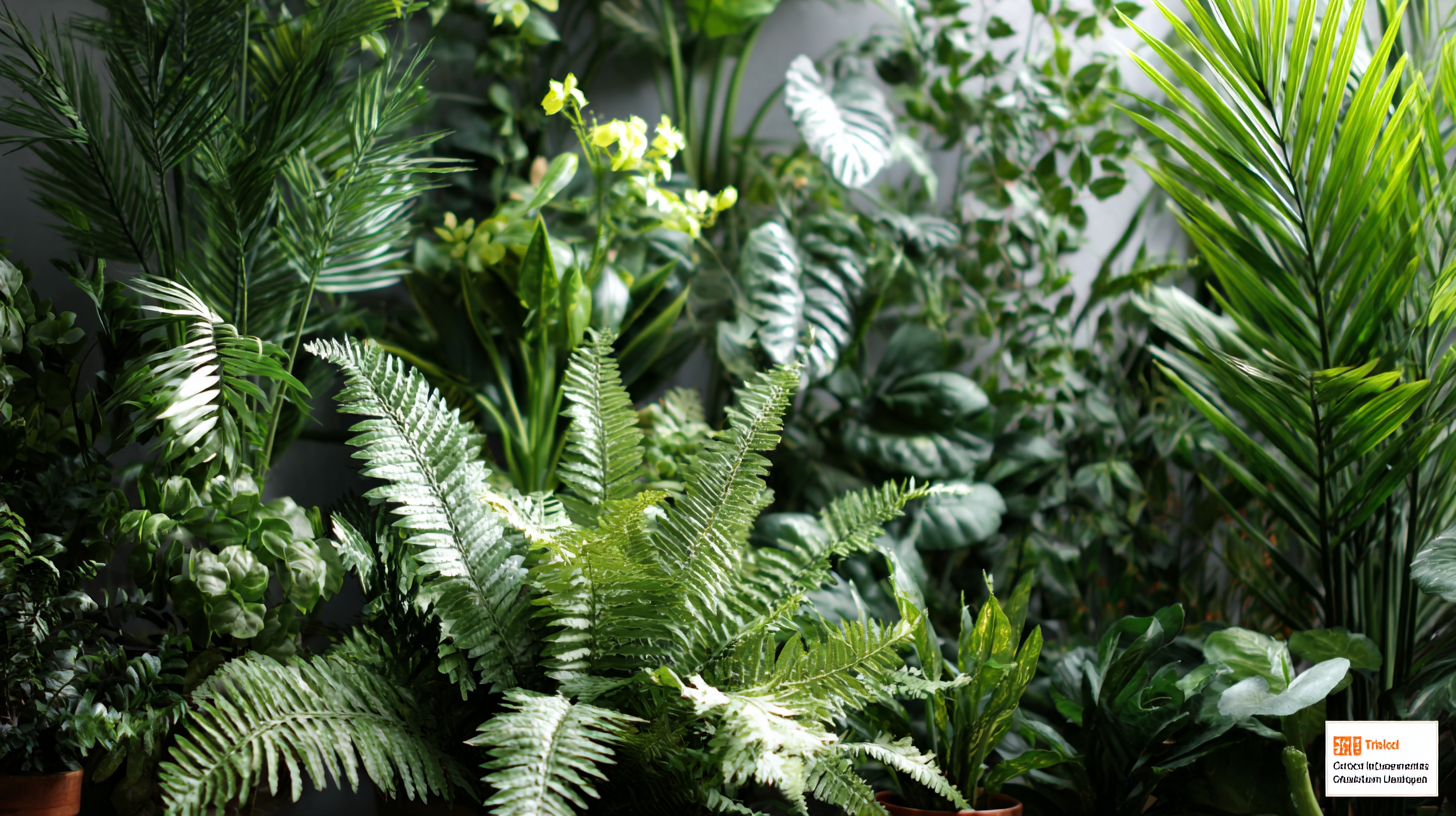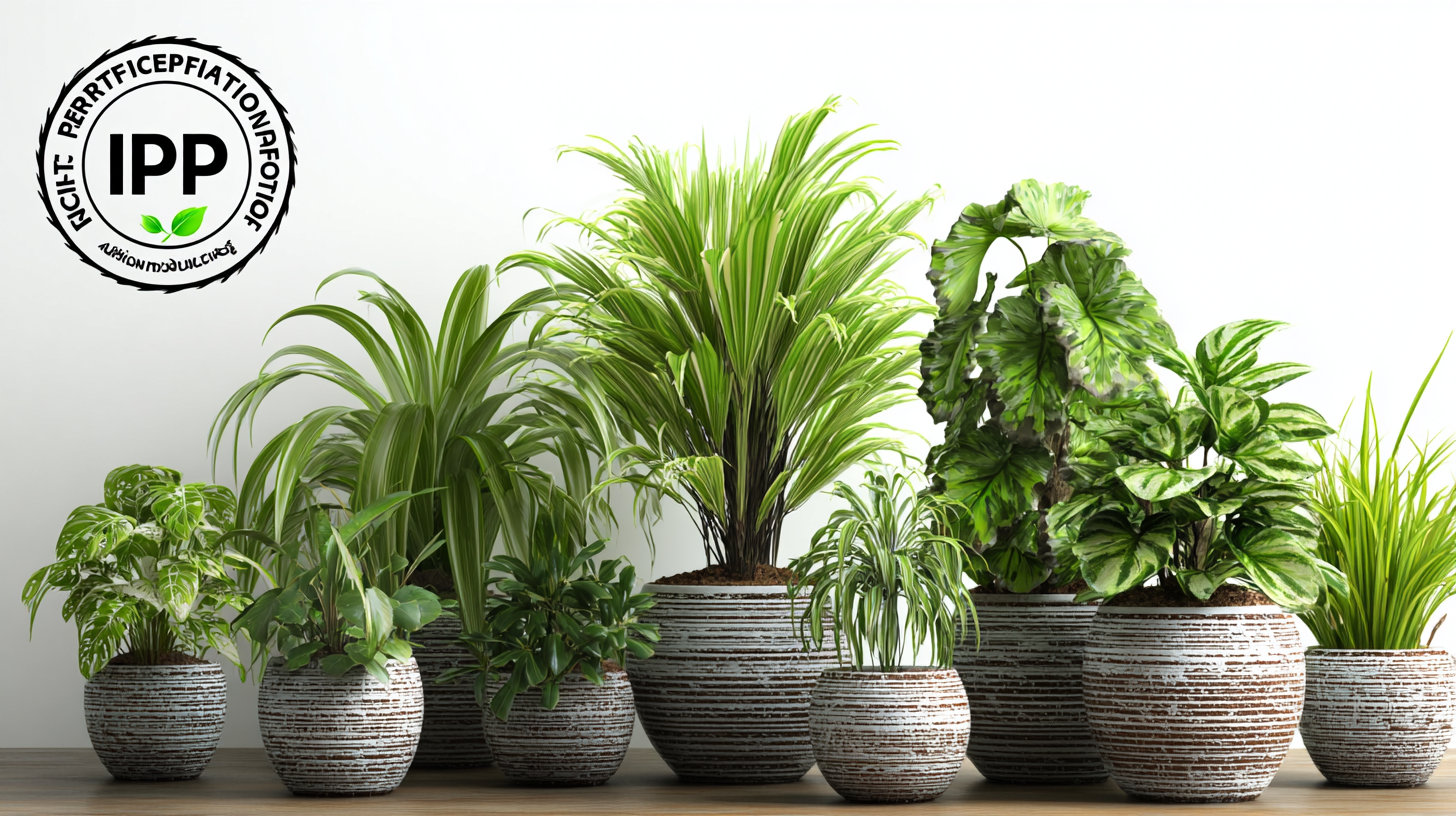
As the demand for "Realistic Fake Plants" continues to rise, with the global artificial plants market projected to reach $3.9 billion by 2027 according to a recent industry report, navigating import-export certifications becomes crucial for suppliers and retailers alike. The allure of these low-maintenance alternatives to live greenery appeals to consumers seeking to enhance their spaces without the hassle of regular care. However, ensuring compliance with various international trade regulations and certifications can be daunting for businesses operating in this sector. This guide aims to equip you with the knowledge necessary to identify and partner with quality suppliers while effectively managing the complexities of import-export certifications, ultimately setting your venture on the path to success in the flourishing realism of artificial botanical offerings.

Navigating the regulatory landscape for importing and exporting artificial plants involves comprehending complex certifications and compliance requirements. The new Waste Shipments Regulation introduced by the EU on January 1, 2021, specifically affects manufacturers operating within this niche, especially those importing plant materials. These rules necessitate stringent tracking of plastic waste, which can directly impact factories relying on imported resources, including those for realistic fake plants. As approximately 30% of businesses in this sector report difficulties in adhering to evolving regulations, the importance of understanding these certifications cannot be overstated.
Moreover, the certification process for artificial plants is coupled with other regulatory frameworks, such as CITES regulations governing the trade of certain plant species. Importers must ensure compliance with CITES documentation requirements, especially for products that could potentially include endangered materials, which adds another layer of complexity. The regulations not only serve to protect the environment but also create challenges for businesses striving to maintain adequate supply chains.
With new Brexit checks taking effect, it has been noted that 50% of UK importers are preparing for an adjustment period that may disrupt the flow of plant products, underscoring the necessity for awareness and adaptability within the industry.
Importing realistic fake plants requires navigating various import export certifications to meet regulations effectively. One crucial system in this process is the Procedure for Electronic Application for Certificates (PEACH). To register for the PEACH system, importers must first create an account on the relevant government portal, providing necessary business details. Once registered, users can submit applications for the required phytosanitary certificates, ensuring compliance with sanitary and phytosanitary controls (SPS) which are vital for maintaining biosecurity.
Addressing technical inquiries about SPS can be daunting, but resources are available to assist. For anyone facing urgent queries regarding border regulations under the Border Target Operating Model (BTOM), contacting the Animal and Plant Health Agency (APHA) support service is essential. They offer guidance to ensure both compliance and smooth processing of imports, making the path clearer for businesses looking to thrive in the competitive market of fake plants.

Navigating import regulations is crucial for businesses dealing in realistic fake plants. Compliance not only streamlines the import process but also enhances credibility with customers and suppliers. Engaging with the necessary certification processes demonstrates a commitment to quality and safety standards, which can significantly boost brand reputation. By adhering to these regulations, companies can avoid costly delays and penalties that could arise from non-compliance, ensuring smoother operations overall.
Moreover, compliance with import regulations opens doors to international markets. Businesses are more likely to establish partnerships and collaborations when they demonstrate adherence to legal requirements. This can lead to increased sales and a more extensive customer base. Furthermore, being compliant also makes it easier to navigate complex trade agreements, leading to potential cost savings and improved profit margins. Ultimately, embracing import regulations not only mitigates risk but also positions companies for long-term success in the competitive market of realistic fake plants.
| Certification Type | Description | Benefits | Compliance Requirements | Duration for Approval |
|---|---|---|---|---|
| CITES Certification | Ensures that the trade of fake plants doesn’t threaten their natural counterparts | Promotes sustainability and ethical sourcing | Verification of species, source documentation | 2-3 months |
| ISO 9001 | Quality management certification for consistent quality | Enhances customer satisfaction and quality assurance | Document control, management review, internal audits | 6-12 months |
| CE Marking | Indicates product compliance with EU safety standards | Access to European markets and increased consumer confidence | Safety tests, documentation of compliance | 1-3 months |
| REACH Compliance | Regulation for registration, evaluation, authorization of chemicals | Protects human health and the environment | Chemical hazard assessment, reporting | 1-6 months |
Navigating the world of import-export certifications for realistic fake plants can be complex yet rewarding. Obtaining the necessary certifications is essential for ensuring compliance and enhancing marketability. To start, the first step is to identify the specific certifications your fake plants might require based on your target market. Research shows that markets increasingly favor sustainable products, so certifications like LEED or other sustainability standards may be advantageous. For instance, a recent report indicates that products certified under sustainability standards have seen a 20% increase in consumer preference over non-certified options.

Once the relevant certifications are identified, the next step is to gather documentation. This often involves completing necessary forms, paying fees, and sometimes providing proof of compliance with quality standards. It’s crucial to ensure that all submissions are accurate, as metric-based data submissions, akin to those used in electronic drug registrations, are becoming more common in regulatory frameworks. Furthermore, maintaining organized records and staying updated on any changes in certification requirements will streamline the process, allowing you to achieve the certifications efficiently and effectively.
Navigating the complexities of import and export certifications can pose significant challenges, particularly for businesses dealing in realistic fake plants. One of the primary hurdles is understanding the varying requirements across different countries, which can lead to confusion and delays in the shipping process. For instance, specific certifications might be necessary to comply with environmental regulations or to show that products meet safety standards. Failure to obtain the correct certifications can result in costly fines or even the rejection of shipments.
Another common issue is the lengthy approval process for certifications. Businesses often find themselves waiting weeks or even months to receive the necessary documentation, which can hinder operational efficiency and affect customer satisfaction. This delay can be exacerbated by bureaucratic inefficiencies or changing regulations, making it crucial for companies to stay informed of the latest developments in trade policy. To mitigate these challenges, companies should consider engaging with trade experts or consultants who can provide guidance on certification requirements and streamline the approval process. Understanding the nuances of these regulations is essential for ensuring smooth import and export operations in the competitive market of artificial plants.
